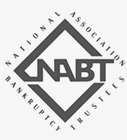At FurrCohen, we have built a solid reputation for providing the representation our clients need when they are faced with difficult and complex debt situations.
We understand that our clients need quality representation that can create real results for them, and we deliver the help necessary to secure the effective and strategic resolutions they need. Our firm has built our reputation for excellence for over 40 years, and we are proud of the leadership position we have attained in our areas of practice.
























"*" indicates required fields